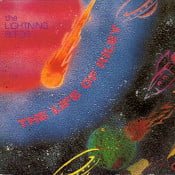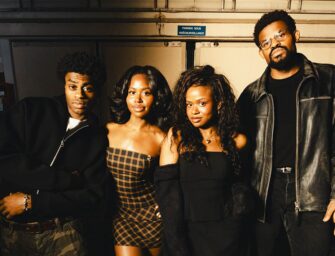
Ian Broudie on The Life Of Riley: “That’s probably not a word you get in many rock songs, ‘eiderdown’. I don’t think it’s in any Axl Rose songs.”
The Liverpudlian producer/songwriter explains how his buoyant pop song went from cassette to 24-track to soundtracking ‘Match Of The Day’
The Lightning Seeds were something of an anomaly during the Britpop era of the mid-90s. Though ostensibly a band, it was really the work of Liverpudlian producer/songwriter Ian Broudie, and thus at odds with the groups that dominated the scene. Broudie had formerly been a member of Big In Japan, along with other greats of the Merseyside scene, Holly Johnson and Bill Drummond. After their brief career ended, he went on to produce albums by the likes of Echo & The Bunnymen and The Pale Fountains.
The Lightning Seeds formed in 1989 and during their heyday were particularly skilled at creating slyly psychedelic slices of indie-pop. Singles such as Pure, Lucky You, Marvellous and Sugar Coated Iceberg all stand the test of time and lay bare Broudie’s subtle artistry. As does The Life of Riley, taken from their 1992 album Sense. It’s a song which, as its creator testifies, was inspired by a very personal event in his life…

Released: 2 March 1992
Artist: The Lightning Seeds
Label: Virgin
Songwriter: Ian Broudie
Producer: Ian Broudie, Simon Rogers
UK chart position: 28
US chart position: 98
Misc: Was used in the ‘goal of the month’ slot on Match Of The Day for many years
“The way I work is that I tend to vaguely write the song, and then the recording is also part of the writing process, so while I was recording the song it was also being written. I recorded that album in my brother’s front room. It was a room with no furniture in so we put our tape machine in there and used the house for a little bit. It was all recorded at that house in Liverpool, so the process wasn’t like I was rehearsing in a room with a group and writing songs which we’d then go and record. It was like, ‘I’ve got this little idea, let’s see what we can get.’
“So it sort of came into being on a recording, because I was a producer and I’d bought a 24-track tape machine and a microphone. The process I had then is one that everyone has now – you get up a beat and doodle a bit over the top of it. But I think mine was a more sort of targeted doodling, as I was always led by the melody and the idea of the song.
“My wife was pregnant and we were waiting for the baby – it was late and I was worried. I was wondering about what would happen and whether I was ready for it, and I think the words are kind of self-explanatory. It’s the whole idea of serendipity, that everything just comes together to create this one person, out of all those little sperms and all those chances. That’s obviously what the first line is about. I knew his name was Riley and I had that kind of jig thing fitting with that, but the lyric was that thing of, ‘What are we going to do? Is it going to be okay?’ Then they come to Earth and it’s up to you to not miss that moment and be in that moment.
“I wrote the second verse after he was born, and it was just the idea of not missing that moment and it will be fine really. It’s also that thing when you’ve got a little baby and its head is poking up through the eiderdown. That’s probably not a word you get in many rock songs, ‘eiderdown’. I don’t think it’s in any Axl Rose songs.
“I remember saying to the engineer when I was doing the strings, which were really fast and complicated, that I wanted it to feel like if you had a camera and you were 50,000 feet above the earth and you dropped the camera and it was just coming down through the clouds, getting closer and closer as it was falling to Earth. That’s how I want these strings to sound. That beginning bit is meant to feel like everything is falling onto the planet.
“I used to meet people who would introduce their sons called Riley and they’d say, ‘We named him after your song’. It’s great, that.”
EXPERT OPINION by James Linderman
“Your writing process may be a bit unusual, according to all the expert advice, but if you’re having hits, it’s hard for so-called experts to come along and tell you you’re doing it wrong! Learn from everyone, but make your music the way your music decides it likes to get made. They can only say it’s weird when it doesn’t work!”







![Interview: Jessie Jo Dillon [2025]](https://www.songwritingmagazine.co.uk/wp-content/uploads/jessie-jo-dillon-2-by-libby-danforth-335x256.jpg)

























Related Articles